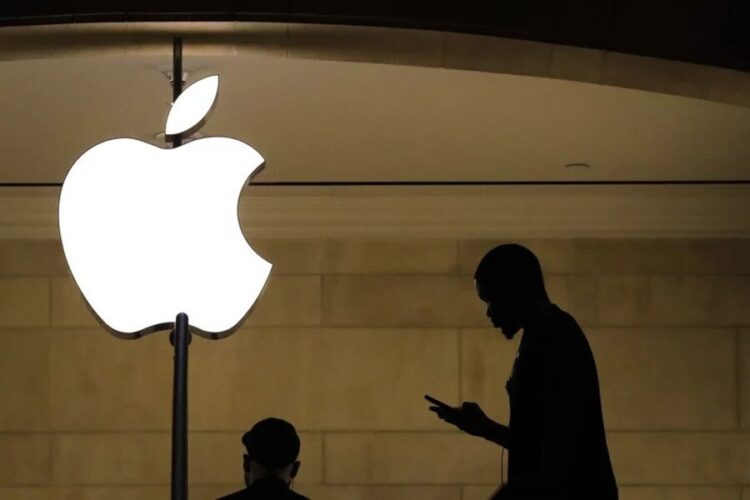The antitrust lawsuit filed by the U.S. Justice Department against Apple, bolstered by the collective efforts of state attorneys general, unveils a complex battleground that necessitates a deep dive into the multifaceted realms of antitrust law, the highly competitive tech industry, and the consequential societal impacts that such legal battles herald.
This case is not merely a legal confrontation but a litmus test for the robustness of antitrust statutes in the face of evolving technological monopolies. It challenges existing legal frameworks to adapt and address the nuanced dynamics of market dominance in the digital age, where traditional concepts of competition and monopoly are continuously redefined by rapid technological advancements and the unique ecosystems developed by tech giants like Apple.
Furthermore, the lawsuit illuminates the intricate balance between fostering innovation and ensuring competitive markets, a core tenet of antitrust law. By scrutinizing Apple’s alleged monopolistic practices, the case opens a pivotal discourse on how regulatory measures can coexist with the tech industry’s drive for innovation.
This legal scrutiny extends beyond courtroom arguments, touching on broader societal implications, including consumer rights, privacy considerations, and the economic impacts on small developers and businesses. The collective insights from state attorneys general amplify the national significance of this lawsuit, underscoring the collective endeavor to ensure a fair and competitive marketplace that benefits society at large.
This case, therefore, stands as a monumental inquiry into the enduring relevance and adaptability of antitrust laws in the modern technological landscape, seeking to redefine the boundaries of lawful competition in the era of digital monopolies.
The Justice Department’s lawsuit against Apple marks a pivotal moment in the ongoing scrutiny of Big Tech’s market power and practices. Filed in the U.S. District Court for the District of New Jersey, the lawsuit alleges that Apple has engaged in monopolistic practices that stifle competition, innovation, and consumer choice in the smartphone market. This action against Apple is part of a broader effort by the U.S. government to rein in the power of major tech companies, reflecting a significant shift in antitrust enforcement philosophy and tactics.
Apple’s iPhone, a product that revolutionized the smartphone industry, stands at the center of this legal battle. The lawsuit accuses Apple of leveraging its control over the iOS ecosystem to maintain an illegal monopoly in the smartphone market. According to the government, Apple’s practices have had far-reaching effects, including stifling the development of competing technologies, imposing unfair conditions on app developers, and driving up prices for consumers.
The lawsuit draws attention to several specific practices that the government argues are indicative of Apple’s monopolistic behavior. These include Apple’s alleged efforts to stifle the development of “super apps” that could challenge its dominance, its restrictions on cloud gaming services, and its refusal to allow third-party payment systems to compete with its own Apple Pay service. The government argues that these actions not only harm competition but also inhibit innovation in the tech industry by discouraging the development of new and potentially disruptive technologies.
In defense, Apple contends that its practices are designed to ensure the quality, security, and privacy of its products and services. The company argues that its integrated ecosystem, which combines hardware, software, and services, is essential to providing a seamless and user-friendly experience that customers value. Apple also maintains that its App Store policies are necessary to protect users from malware and fraud and that the fees it charges are in line with those of other digital marketplaces.
The legal battle between the U.S. government and Apple is set against a backdrop of growing concern over the power and influence of Big Tech companies. In recent years, there has been increasing scrutiny of the practices of companies like Google, Amazon, and Facebook, leading to calls for more robust antitrust enforcement. The lawsuit against Apple is part of this broader movement, reflecting a shift toward a more aggressive stance on antitrust issues by the U.S. government.
The case also raises important questions about the future of technology and innovation. Critics of Apple’s practices argue that the company’s dominance stifles competition and innovation, preventing the emergence of new and potentially transformative technologies. They contend that breaking up Apple’s alleged monopoly could lead to a more dynamic and competitive market, with greater choice and lower prices for consumers.
However, supporters of Apple argue that the company’s success is a result of its ability to innovate and provide high-quality products and services and that disrupting its business model could harm consumers by reducing the quality and security of digital products.
As the legal proceedings unfold, the lawsuit against Apple is likely to be closely watched by industry observers, policymakers, and consumers alike. The outcome of the case could have significant implications for the tech industry, potentially setting a precedent for the regulation of digital markets and the enforcement of antitrust laws in the digital age.
Regardless of the outcome, the lawsuit underscores the ongoing debate over the role of Big Tech in society and the need for regulatory frameworks that promote competition, innovation, and consumer protection in the rapidly evolving digital economy.
This landmark legal challenge to Apple’s market dominance exemplifies the tension between maintaining a competitive market landscape and fostering an environment conducive to innovation and consumer benefit. As this case progresses, it will undoubtedly continue to spark debate over the balance between regulatory oversight and the entrepreneurial spirit that has driven the tech industry’s explosive growth.










